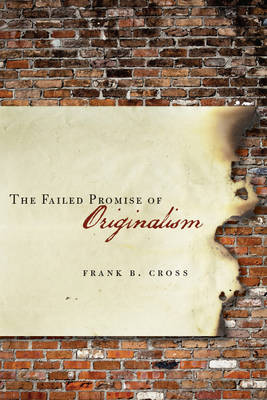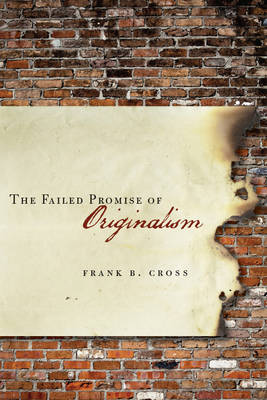
- Afhalen na 1 uur in een winkel met voorraad
- Gratis thuislevering in België vanaf € 30
- Ruim aanbod met 7 miljoen producten
- Afhalen na 1 uur in een winkel met voorraad
- Gratis thuislevering in België vanaf € 30
- Ruim aanbod met 7 miljoen producten
Zoeken
Omschrijving
Originalism is an enormously popular--and equally criticized--theory of constitutional interpretation. As Elena Kagan stated at her confirmation hearing, "We are all originalists." Scores of articles have been written on whether the Court should use originalism, and some have examined how the Court employed originalism in particular cases, but no one has studied the overall practice of originalism. The primary point of this book is an examination of the degree to which originalism influences the Court's decisions. Frank B. Cross tests this by examining whether originalism appears to constrain the ideological preferences of the justices, which are a demonstrable predictor of their decisions. Ultimately, he finds that however theoretically appealing originalism may seem, the changed circumstances over time and lack of reliable evidence means that its use is indeterminate and meaningless. Originalism can be selectively deployed or manipulated to support and legitimize any decision desired by a justice.
Specificaties
Betrokkenen
- Auteur(s):
- Uitgeverij:
Inhoud
- Aantal bladzijden:
- 236
- Taal:
- Engels
Eigenschappen
- Productcode (EAN):
- 9780804783828
- Verschijningsdatum:
- 9/01/2013
- Uitvoering:
- Hardcover
- Formaat:
- Genaaid
- Afmetingen:
- 155 mm x 229 mm
- Gewicht:
- 439 g

Alleen bij Standaard Boekhandel
+ 177 punten op je klantenkaart van Standaard Boekhandel
Beoordelingen
We publiceren alleen reviews die voldoen aan de voorwaarden voor reviews. Bekijk onze voorwaarden voor reviews.











